Why do cucumber leaves turn yellow at the edges and what to do?
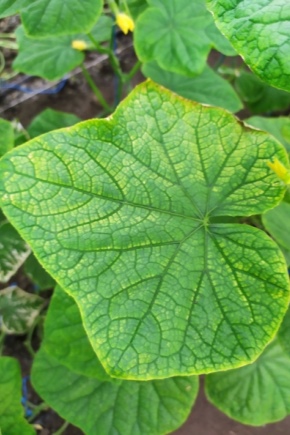
When the leaves of cucumbers turn yellow at the edges, dry and curl inward, there is no need to wait for a good harvest - such signs signal that it is time to save the plant from diseases or improper growing conditions. Diagnosing the problem helps to understand what to do in such a situation. Only by carefully considering all the identified signs of damage, one can understand why the border appeared, how to deal with it with folk remedies or proven chemicals.
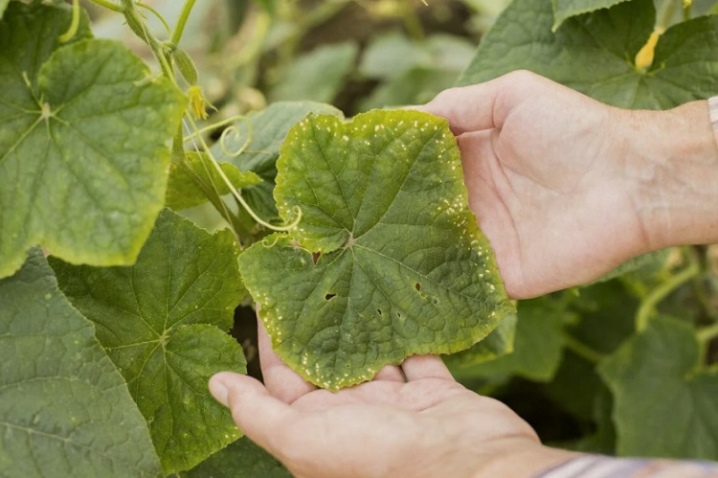
Main reasons
Diagnosis of most problems in the cultivation of greenhouse vegetable crops usually begins with an examination of their appearance. If the leaves of cucumbers dry and turn yellow at the edges, while a healthy green color remains in the center, it is worth paying more attention to checking the conditions in which the seedlings or shoots are located in a greenhouse, open ground. Sometimes the spread of infectious diseases of cucumbers is also associated with external factors. For example, with a decrease in atmospheric temperatures, plant immunity weakens its defense - this is enough for them to start losing ground in the fight against fungi and rot. The surface of the green plate, which changed color not with a solid border, but with a speck, is also a bad sign - most likely, the cucumbers are attacked by pests.

If the leaves curl inward, and a dry edge appears around the perimeter, forming a border along the edges of the leaf, there is a high probability that the shoots are affected by diseases or pests. These signs are especially characteristic for fungal infections, which easily appear in both seedlings and adult plants. Moreover, even in the presence of yellowness and a fragile rim over a large area, cucumbers can most often still be saved. You just need to determine why the edging was formed, and then take the appropriate measures.
The reasons why the leaf edge of cucumbers in a greenhouse, in an open field, may turn yellow, deserve more careful consideration. Let's highlight the most common sources of the problem.

Poor care
If the plant simply lacks moisture, it dries up, turns yellow, and all large areas of the shoots are dehydrated. With abundant watering, this symptom can also appear, but to a lesser extent, without the formation of a crust at the edges of the leaf. In a greenhouse, this factor affects the state of plants even more, the problem is aggravated by exceeding the norms of temperature and humidity, lack of light, and excess fertilizers.
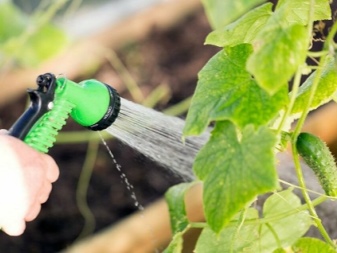
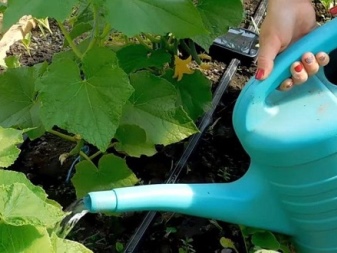
Natural aging
The edge of a leaf always turns yellow first when it begins to die off. This is a telltale sign that the lash harvest period is coming to an end. The depigmentation is due to the fact that leaf cells reduce their ability to photosynthesis with age.
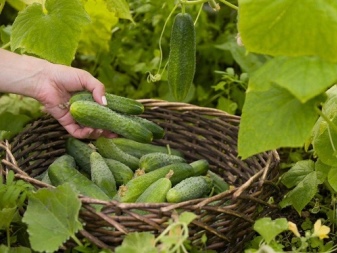
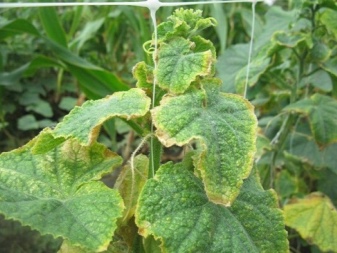
Temperature differences
They most often provoke yellowing of the edges of the leaf if the seedlings are transferred too early to the open ground. It is worth remembering that cucumbers are extremely sensitive to growing conditions. In the phase of active growth, night temperatures for them should not fall below +16 degrees; during the fruiting period, this border shifts to a minimum of + 18 ° C.
When it gets cold, the plants must be placed in a shelter.
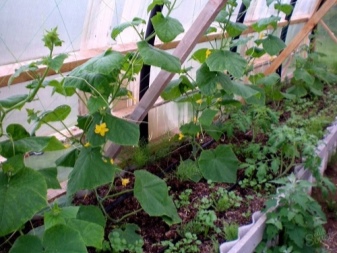
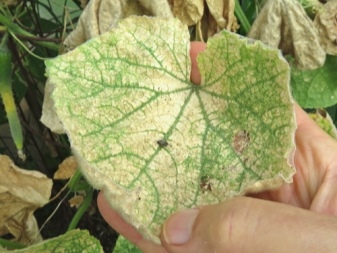
Lack of minerals
The formation of a yellow dry border on the leaves may indicate a lack of boron or nitrogen. Potassium deficiency is manifested by a combination of a pale yellow edging and a light green middle. Brownish and twisted leaf plates are a sign that there is a lack of calcium in the soil.
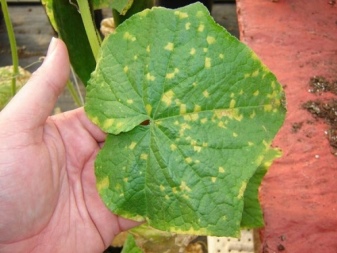
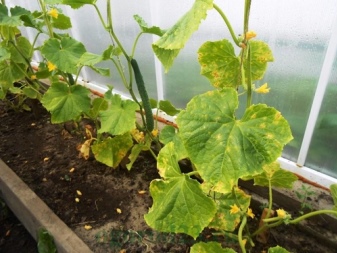
Wrong choice of landing site
Cucumbers are a moisture-loving and light-loving culture, their homeland is Hindustan, where all conditions have been created for the successful reproduction of this culture. In other climatic conditions, the plant needs to provide them artificially. Do not leave cucumbers in the open sun for a long time - in such areas, as in the lowlands, the leaves will turn yellow. The best place to plant is in the partial shade of garden trees and shrubs.
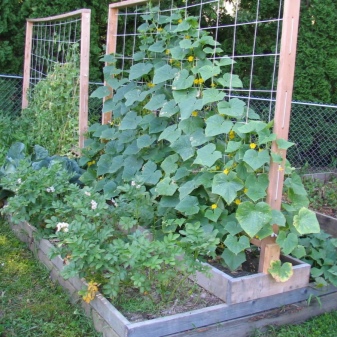
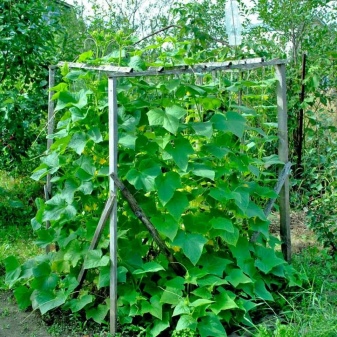
Unsuitable soil
Yellowing of the leaves along the edge may indicate that the soil is too acidic or very loose, quickly filters moisture, preventing it from lingering at the roots. The ideal option for planting cucumbers is a sandy loam substrate or loam, generously flavored with organic additives.
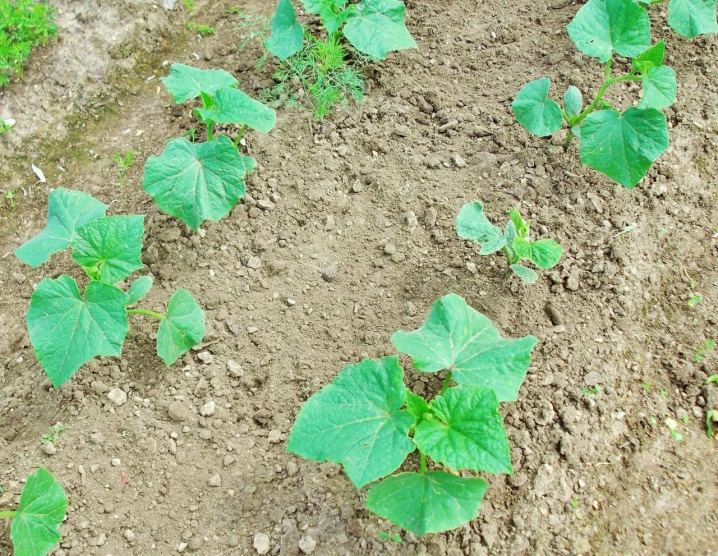
Diseases
Most often, with the yellowing of the edges of the leaf in cucumbers, a fungal disease called fusarium... This infection can affect the entire vegetable plantation, so you should not treat its manifestations too lightly. If the yellowness expands, passes to the entire surface of the leaf, the cause may be powdery mildew... Similar symptoms occur when root rotwhen the defeat is already in the final stage.
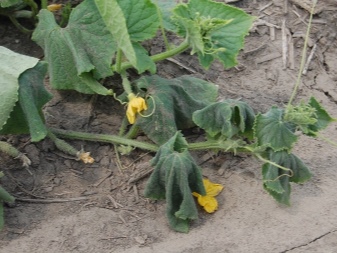
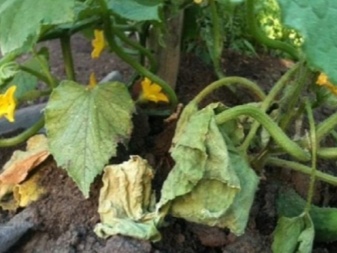
Pests
If, when examining the stems and leaves, on which a yellow border has appeared, signs of living things are found, most likely they are the source of the problem. About the appearance aphids additionally signals ripples on the surface of the plate, the appearance of characteristic points. Whitish threads on the shoots are a sign of an attack spider mite... Caterpillars can also eat the stems whitefly.
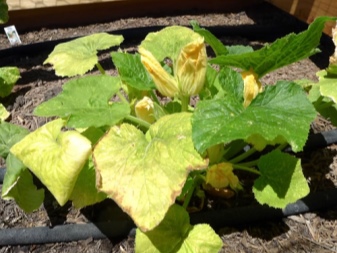
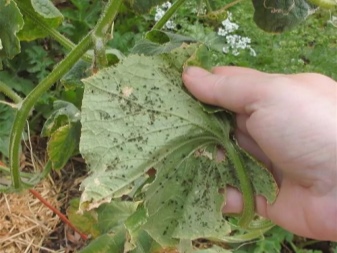
Having identified the cause of the problems, you can proceed to eliminate it. It is necessary to act quickly, otherwise the risks of being left without a crop will increase significantly. For example, with root rot, the shoots will have to be destroyed in any case, and it is usually possible to fight pests during the growing season, but with varying success.
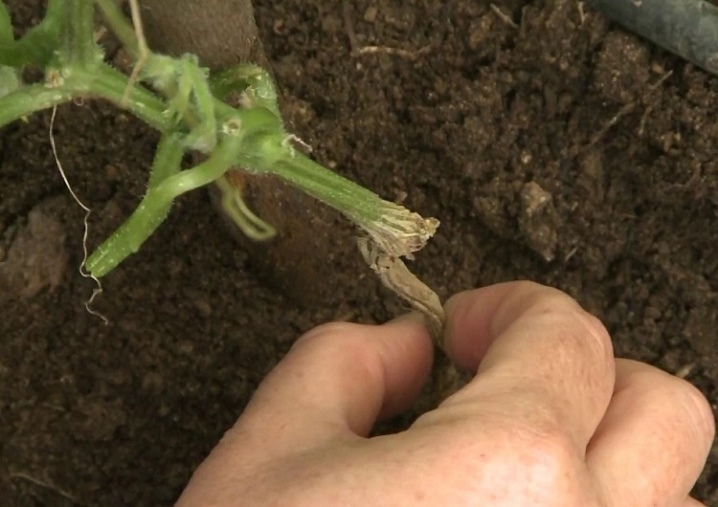
How to fight?
To understand what to do if a yellow border appears on the leaves of cucumbers in a greenhouse or in the open field, simple and understandable algorithms of actions will help. Sometimes it is enough to superficially process the shoots, feed them in order to rectify the situation. In other cases, the treatment takes longer, you have to regularly water the cucumbers with special preparations. All possible scenarios for the development of events should be considered in more detail.
Let us analyze how actions to save plants in the open field should develop.
- Eliminate nutrient deficiencies. For this, complex fertilizers are used, agents that stimulate active growth and development of shoots.
- Adjust watering. It is necessary to control the degree of soil moisture, and then increase the rates of incoming water or reduce them.
- If insects are detected, pest control. It can be complicated by the fact that during the flowering or fruiting period, many types of drugs simply cannot be used.
- Carry out a preventive fungicidal treatment. Additionally, other risk factors need to be eliminated. Adjust the moisture content of the substrate, if necessary, organize a shelter for plants at night.
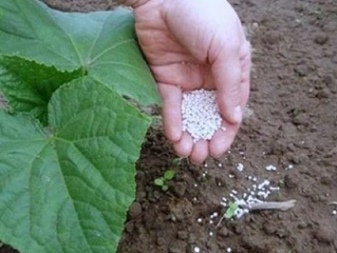
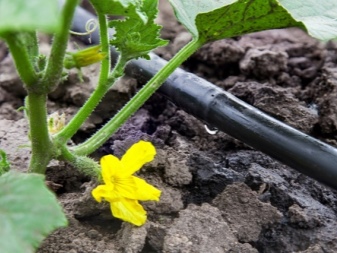
Greenhouse cultivation of cucumbers with the appearance of a yellow dry border along the edges of the leaves is also difficult. Here the struggle begins with the selection of the optimal water temperature for irrigation - the cold water is replaced with settled warm water. Additionally, it will be useful to add a complex of mineral fertilizers to the soil. If the yellowing of the leaf edges is accompanied by poor pollination, watering with boron preparations should be organized.If signs of infection develop on plants, chemical treatment or spraying with folk remedies is carried out.
A yellow border may also appear on seedlings standing on the windowsill. At an early stage of plant development, this is a sign of improper watering.
It is necessary to stop root moistening for several days, replacing it with spraying on the surface of the leaves.
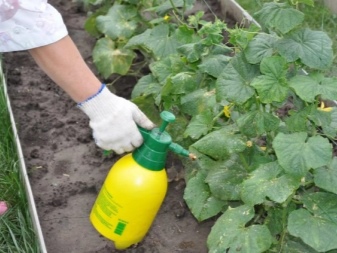
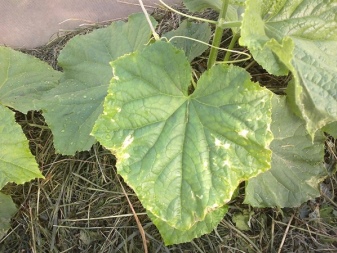
Chemicals
Fungal infections are the most dangerous for cucumbers. It is they that infect the roots, stems and leaves of the plant. The only effective means of dealing with them is fungicidal preparations:
- "Topaz" for treatment and prevention;
- "Barrier";
- Fundazol;
- 1% Bordeaux mixture;
- Trichopolum tablets.
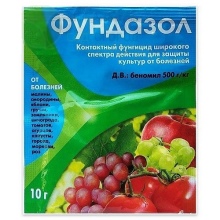
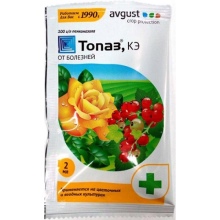

Additionally, the compositions "Zircon", "Epin" are used as immunostimulants in the formation of a yellow border on the leaves of cucumbers.following the manufacturer's instructions. The use of pesticides against pests is also possible. For cucumbers, the means "Aktellik", "Aktara", "Fitoverm" are suitable. They are used outside the periods of formation of ovaries and fruits, the last spraying is done at least 3 weeks before harvesting.
One of the most popular formulations against fungal diseases is Fitosporin. It is suitable for use during the growing season and flowering shoots. The drug contains trace elements and phytobacteria, it is quite safe for cucumbers, it is produced in powder for solution preparation.
Spraying is done 4 times a month, weekly.
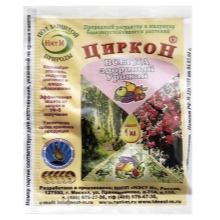
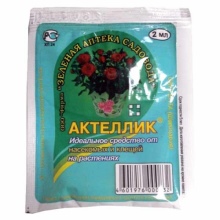
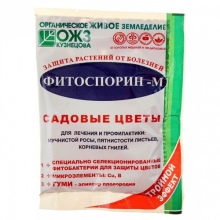
Folk remedies
Time-tested recipes that do not require the use of chemicals can also be used to combat the formation of a yellow border on cucumber leaves. There are several of the most popular folk compositions for the destruction of insects.
- Spraying with garlic infusion. It is prepared on the basis of liquid soap (20 g) and a head of fresh garlic in 1 liter of water. The resulting mixture is kept for 7 days in a shaded place, then filtered, diluted in a proportion of 75 ml per 10 liters of water. The product is poured into a garden sprayer, sprayed onto the surface of the leaves from pests.
- Root watering with a decoction of onion peel. Boil one tablespoon of dry onion shell in 5 liters of water. The cooled solution is used for watering cucumbers at the root at the rate of 1 liter per plant.
- Spraying with colloidal sulfur solution. In this case, the drug is prepared at a concentration of 1% - about 100 g per 10 liters of water. It is sprayed on the shoots. This processing method is good for killing spider mites.
- Spraying a solution of nitroammofoska. It does a good job of killing aphids. For 10 liters of water, 3 tbsp is enough. l. granules.
This is a basic list of recipes that can be used to combat insect pests.
And also tobacco planted in the aisle is used to scare off whiteflies from the beds.
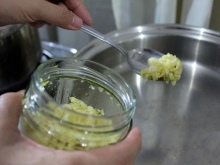
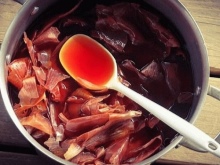
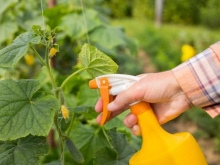
Recommendations
In many cases, regular feeding helps to solve the problem of yellowing of leaves in cucumbers in a greenhouse or in the open field. Among the popular recipes, a number of compositions can be distinguished.
- A mixture of superphosphate, ammonium nitrate and potassium salt - in total, a tablespoon should be obtained. The ingredients are combined in equal proportions, dissolved in a bucket of water. Watering is organized in a volume of 1 liter of solution per bush. After fertilization, you need to carry out abundant root watering.
- The usual tops of garden plants can become a source of nitrogen. It is filled 1/3 with an ordinary 10 liter bucket. Pour water to the top. The preparation of the infusion is carried out under a cloth, it takes about a week. The mixture is stirred periodically, then diluted 10 times and used for irrigation at a rate of 2 liters per 1 bush
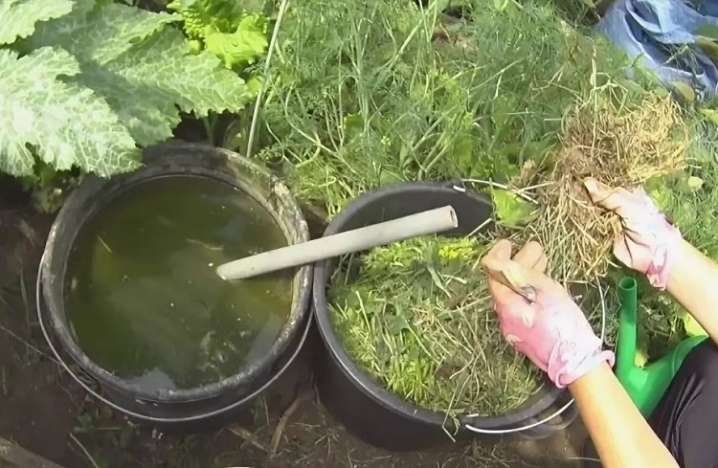
Such feeding is especially effective in due time. The nitrogen composition is used to combat the yellow border during the period of growing green mass by the plant. During flowering, a complex potassium-phosphorus mixture is already introduced.
Preventive measures are also very important. It is possible to prevent the reappearance of the yellow border on the edges of the leaves when growing cucumbers by regularly devoting time to disease prevention, arranging an inspection of the shoots for the presence of pests. And you should also constantly fight weeds, loosen the soil, apply fertilizers, taking into account the recommendations for their seasonal use.
Using a mixture of sand and charcoal in the root zone will help prevent overflow.
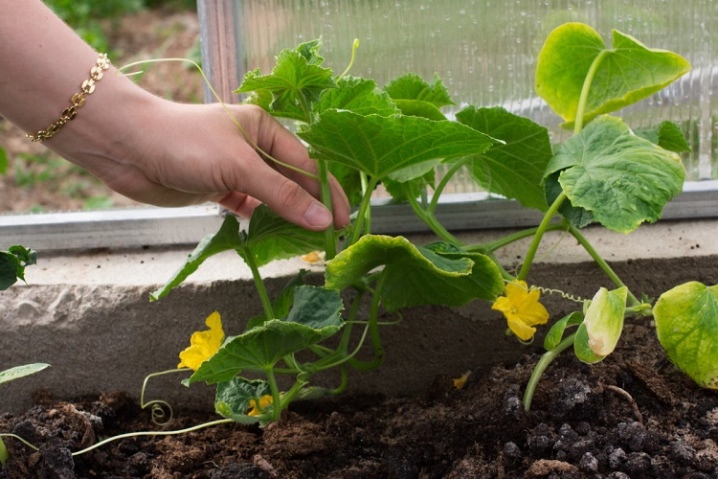
And also it is worth following a number of useful recommendations.
- Carry out regular pinching of plants in the greenhouse. Expending moisture on side shoots, cucumbers cannot properly distribute it, there is a shortage of water. Its first sign is a dry yellow border along the edges of the leaf.
- Ventilate the greenhouse. This preventive measure prevents air stagnation, helps to avoid condensation, hypothermia of the soil. With proper and regular ventilation, the risks of developing fungal diseases can be significantly reduced.
- Cover plants outdoors in cold weather. You can use spunbond or ordinary plastic wrap for these purposes.
- When watering, avoid droplets on the leaves. On contact with direct rays of the sun, a burn will appear on them in the form of a yellow spot or border.
- At the seedling stage, regularly change the container capacity as the shoots grow. If there is not enough space for the root system, the leaves will receive too little moisture. In addition, it is recommended to additionally illuminate containers with seedlings with phytolamps in the morning and evening hours.
By following the basic rules for caring for cucumbers in a greenhouse, in a garden bed or in containers, you can avoid the appearance of a characteristic yellow border on the leaves.
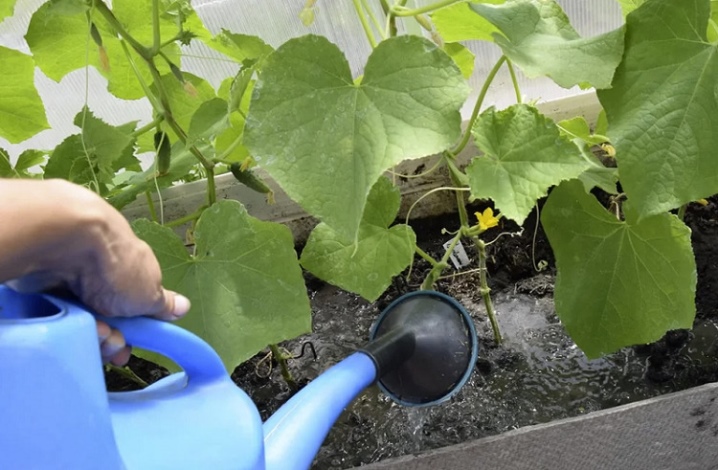













The comment was sent successfully.